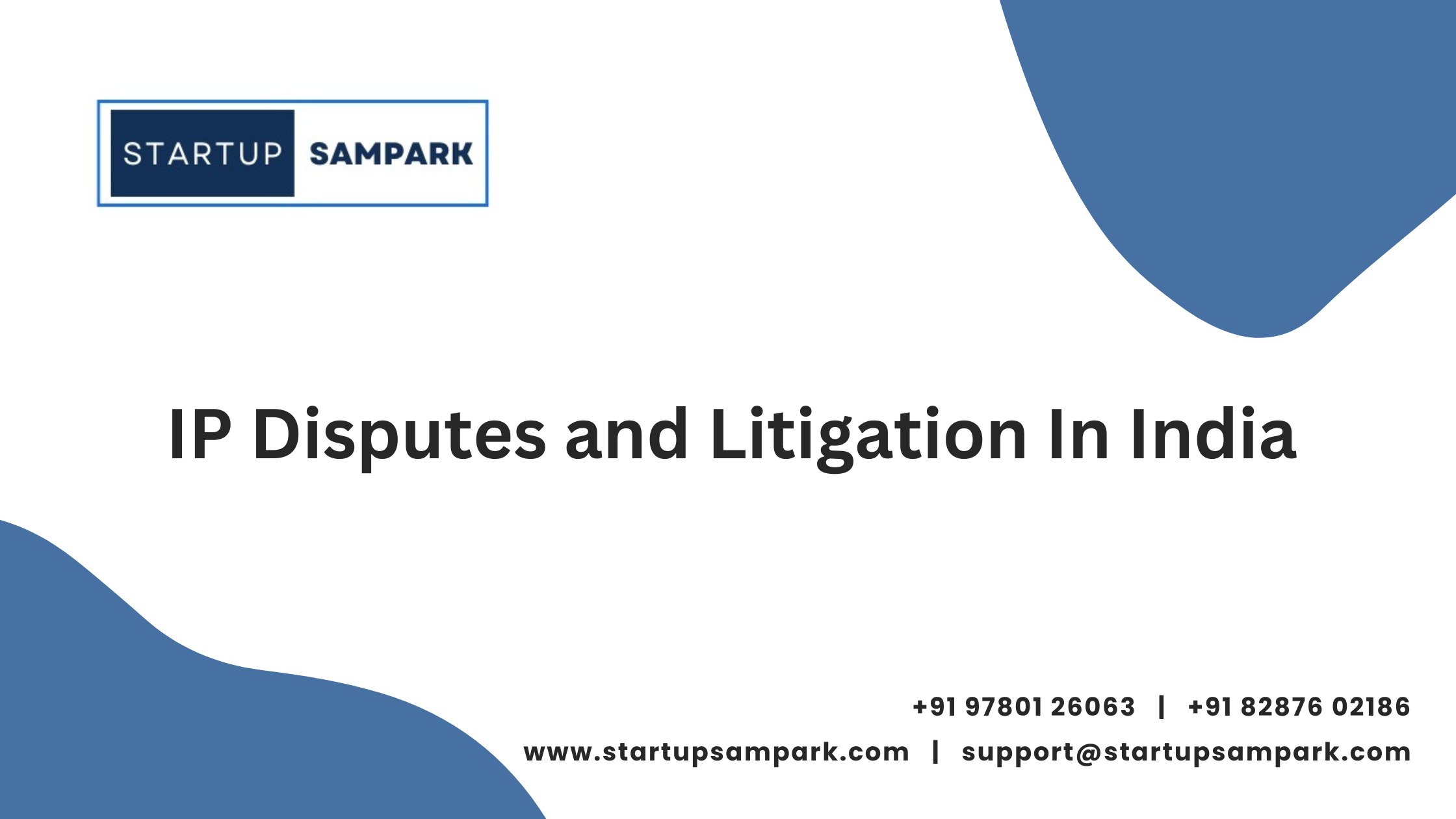IP Disputes and Litigation In India
1. Introduction to IP Disputes in India
Intellectual Property (IP) disputes arise when there is a conflict over the ownership, use, or infringement of IP rights, such as trademarks, patents, copyrights, or designs. In India, with the increasing significance of IP in business and innovation, disputes have become more common. The legal framework for IP disputes is governed by various laws, including the Patents Act, 1970, the Copyright Act, 1957, and the Trademarks Act, 1999. Resolving these disputes often requires legal intervention through litigation, mediation, or arbitration.
2. Common Types of IP Disputes
IP disputes in India can take various forms, such as trademark infringement, patent disputes, copyright violations, and breach of confidentiality agreements. Trademark disputes often involve the unauthorized use of a mark that is confusingly similar to a registered one, while patent disputes focus on issues of novelty and non-obviousness. Copyright disputes revolve around the unauthorized reproduction or use of a protected work, and trade secret disputes involve the unauthorized disclosure of confidential business information.
-
 Startup Registration (DPIIT Recognition)₹8,850.00
Startup Registration (DPIIT Recognition)₹8,850.00
3. Legal Framework for IP Litigation
The legal framework for IP litigation in India is well-defined, with specialized laws governing each type of IP. The Patents Act, 1970, the Trademarks Act, 1999, and the Copyright Act, 1957, provide procedures for resolving disputes. Additionally, the Commercial Courts Act, 2015, enables the establishment of commercial courts to expedite IP disputes and ensure swift resolution. The Delhi High Court and the Madras High Court are well known for their active IP benches, where numerous IP cases are filed and resolved.
4. Procedures for IP Litigation
IP litigation in India follows a structured process. It starts with the filing of a suit or complaint by the aggrieved party, usually seeking remedies such as injunctions, damages, or account of profits. The court may issue an interim injunction to prevent the continued use of the infringing material until the case is resolved. Discovery, examination of evidence, and cross-examination of witnesses follow. In certain cases, the court may refer the parties to mediation or arbitration to resolve the dispute outside the courtroom.
5. Remedies for IP Disputes
The remedies available in IP disputes include injunctions, damages, and orders for the destruction of infringing goods. Injunctions, both interim and permanent, are one of the most common remedies and are issued to prevent further infringement. Damages can be awarded for the financial losses incurred due to the infringement. Additionally, courts may order the delivery or destruction of infringing goods, providing relief to the IP holder by removing unauthorized products from the market.
6. Conclusion
IP disputes and litigation play a crucial role in protecting intellectual property rights in India. With the growing importance of IP in various sectors, resolving these disputes efficiently is essential for promoting innovation and fair competition. Businesses should be aware of their legal rights and remedies, and take proactive measures, such as registering IP and monitoring potential infringements, to safeguard their assets. The evolving IP landscape in India demands an understanding of both litigation procedures and alternative dispute resolution mechanisms to ensure the effective protection of intellectual property.
startup, company incorporation, india
-
 Startup Registration (DPIIT Recognition)₹8,850.00
Startup Registration (DPIIT Recognition)₹8,850.00















Post Comment